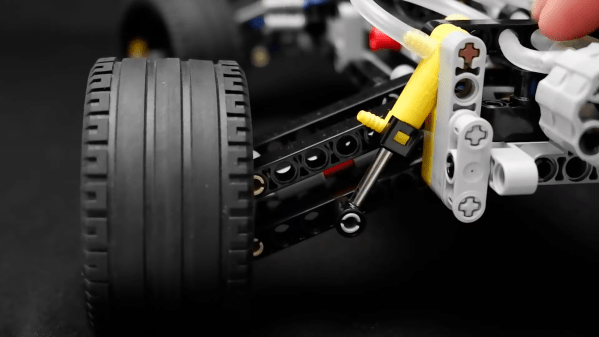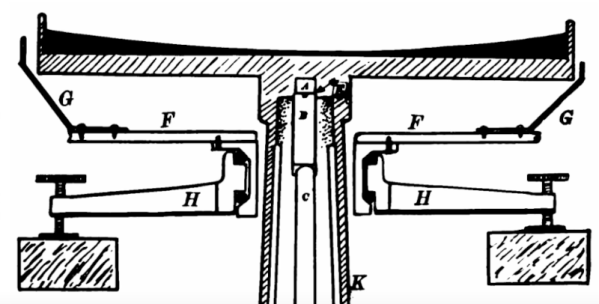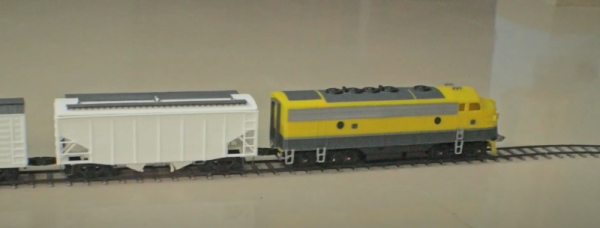The most common suspension systems on automobiles rely on simple metal springs. Leaf spring and coil spring designs both have their pros and cons, but fundamentally it’s all about flexing metal doing the work. Air suspension works altogether differently, employing gas as a spring, as demonstrated by this simple Lego build from [JBRIX].
The suspension system is employed on a Lego Technic car, with a relatively unsophisticated design. The car has no real form of propusion, and serves solely to demonstrate the air suspension design. They may look like dampers, but the system is actually using Lego pneumatic pistons as springs for each wheel. The pistons are connected to the upper control arm of a double wishbone suspension setup. Each piston is pneumatically connected to a main reservoir. With the reservoir, and thus the pistons, pressurized, the suspension system can support the weight of the car. If a bump perturbs a wheel, the piston compresses the air in the system, which then returns the piston to its original position, thus serving as a spring. If the reservoir is vented, the suspension collapses. Air springs on real, full-sized automobiles work in basically the same way. However, they usually have a separate reservoir per corner, keeping each wheel’s suspension independent.
Overall, if you’re working on some kind of Lego rambler, you might find this suspension concept useful. Alternatively, you might simply find it good as a learning aid. If you want to learn more about oddball suspension systems, we can help there too. Video after the break.
Continue reading “A Simple Air Suspension Demo With Lego Technic”

















